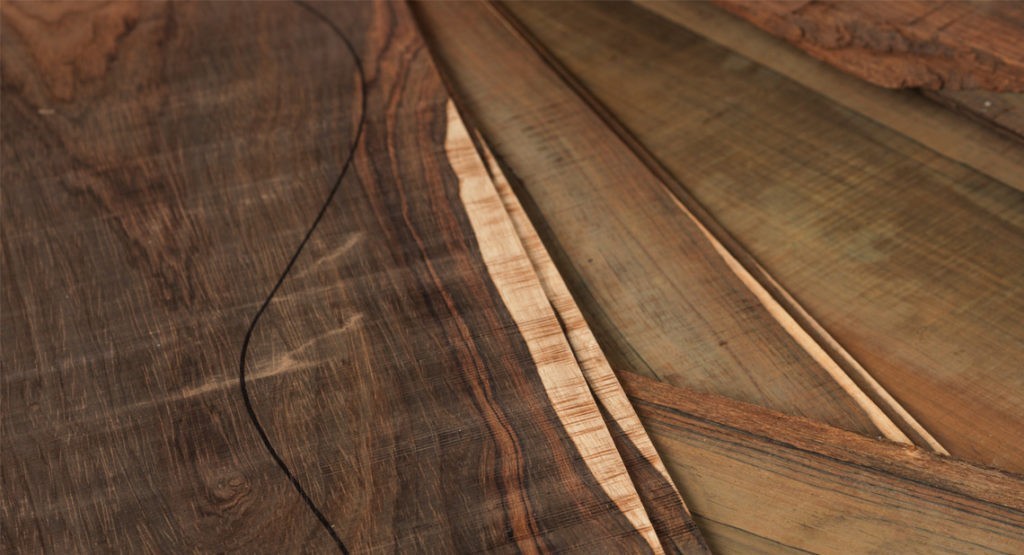Saving the World’s Rosewood Forests: NEW CITIES ROSEWOOD CHANGES

182 nations have ratified the international treaty called CITES (Convention on International Trade in Endangered Species), a convention committed to protecting threatened and endangered plants and animals around the world. It allows for various levels of regulation from a complete ban, for example, on any trade in elephant ivory, to a mere reporting and tracking of vulnerable plants and animals. Enforcement happens at the border of each nation. For example, Brazilian rosewood is an endangered species. Countries participating in CITES have agreed that Brazilian rosewood may not cross their borders without proper verification that it was harvested before 1992 when it became an Appendix I listing. Breedlove Guitars was able to acquire an extensive collection of Brazilian rosewood that landed in Spain during the 1950’s and 1960’s. Therefore, our guitars can be legally sold and permits gained for worldwide travel.
I have personally visited several countries where various rosewood species grow. One example is Madagascar rosewood: we had acquired 95 sets. The paperwork that came with it looked suspicious. With representatives of the World Resource Institute (WRI) we traveled to Madagascar to investigate. The Madagascar rosewood forests have been decimated. We saw stashes of rosewood logs hidden in the jungle. Confiscated piles of rosewood were raided with the purpose of replacing larger logs with smaller less valuable timber. Corruption was reported at a local, regional and national levels. Why? The Chinese are willing to pay vast sums of money for the incredible figure and color of Madagascar rosewood for exotic furniture. I am 100% convinced the Madagascar I had acquired was illegally harvested. At retail, finished guitars from our collection could have totaled almost $500,000.
Likewise, the rosewood forests of Thailand, Vietnam and Laos have been illegally decimated and smuggled into China. Much of the Indonesian rosewood is conversion wood from illegally clearcut rainforests to clear the land for palm oil plantations.
Most of the rosewood used in acoustic guitars comes from India and is plantation grown. India enforces an auction system which limits corruption and assures a regulated, honest system for the sale and chain of custody for East Indian rosewood. I know of no USA acoustic guitar builder that is knowingly using illegally harvested rosewood.
But the problem is enforcement. A US Customs Official cannot know the difference among products crafted with Brazilian, Madagascar, East Indian, Indonesian, or South East Asian rosewood. Failure of enforcement was allowing the Chinese and other countries to continue trading in threatened and endangered rosewood species. This compelled the world’s nations at the recent CITES conference to list all dalbergia (rosewood/cocobolo) species to be listed in Appendix II.
What does this mean for guitar manufacturers and retailers?
1) We must verify all of our wood stocks and finished inventory that was procured and crafted with rosewood acquired before January 2, 2017. In the case of Breedlove Guitars, we have exceptional records on every tonewood set we own, and, by serial number, on every instrument we have handcrafted.
2) There is no need to provide documentation for acoustic instruments sold in America.
3) When a consumer wishes to travel internationally with their rosewood guitar there is no problem. Any rosewood under 22.4 lbs does not need a permit.
4) Permits must be secured for any international commercial shipment of products containing rosewood. Again, Breedlove Guitars can provide all of the required paperwork to make the permitting process rudimentary.
Initially, I imagine companies complaining of government overreach. That the CITES Appendix II listing of all dalbergia is unnecessary and inappropriate. But I argue it is essential to save the world’s rosewood forests. It compels the Chinese and other nations that were illegally trading, to join the rest of the countries of the world in compliance. We in the acoustic instrument business rely on exotic trees for our tonewood. It is a small price to pay to keep records of the chain of custody and sources of supply for the wood that enables our beautiful musical instruments.
Tom Bedell
